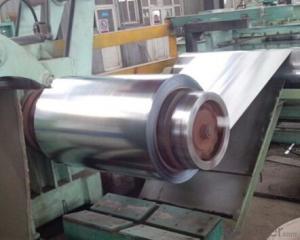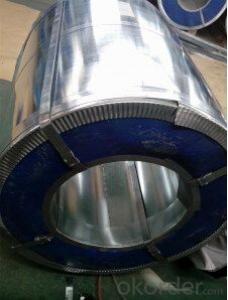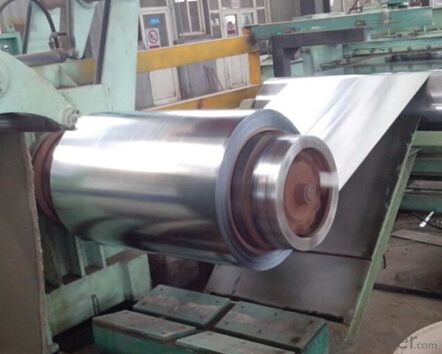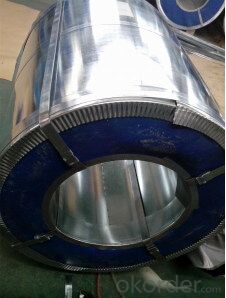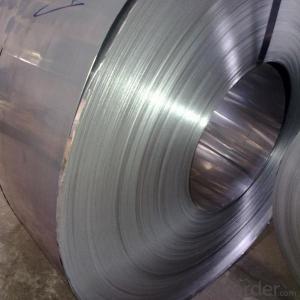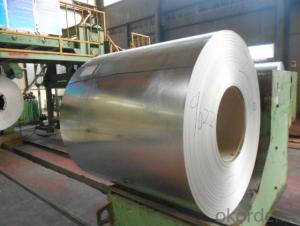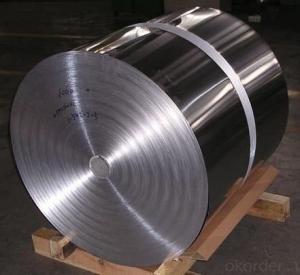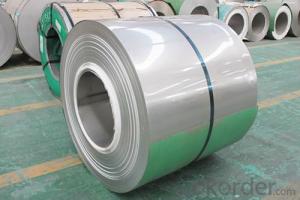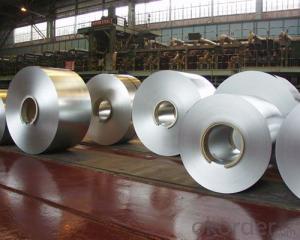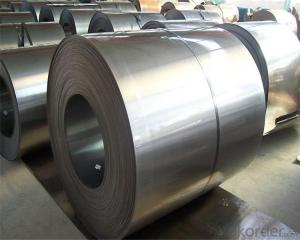High Quality 201 Stainless Steel Coil for Construction
- Loading Port:
- Tianjin
- Payment Terms:
- TT OR LC
- Min Order Qty:
- 25 m.t.
- Supply Capability:
- 10000 m.t./month
OKorder Service Pledge
OKorder Financial Service
You Might Also Like
Description Basic Info.
Model NO.:201
Surface Treatment:2b, Ba, No. 1, No. 8, 8k, Mirror
Technique:Hot Rolled and Cold Rolled
Standard:ASTM, JIS, GB, AISI, DIN, BS
Steel Grade:200
Thickness:0.3mm-30mm
Width:1000 to 2000mm or Customized
Certifications:ISO 9001 and SGS
Export Markets:Global
Additional Info.
Packing:Seaworthy Wooden Pallet or Customized
Standard:SGS
Origin:Taiyuan Shanghai
Production Capacity:10000tons/Month
Product Description
1.Specifications of Stainless Steel Coil:
Width: 1000 to 2000mm or customized
Thickness: 0.3 to 30mm
Standards: AISI, ASTM, JIS, SUS and GB
Grade: 200/300/400 series
Surface: 2b, Ba, No. 1, No. 8, 8k etc.
Certifications: ISO 9001 and SGS
Applications: Kitchenware, utensils, tableware, household appliances, construction decoration and daily products
Packing: Seaworthy wooden pallet or according to client's requirement
Place of origin: Shanxi China (mainland)
Payment terms: L/C or T/T
Delivery time: Up to order quantity
2.Chemical Composition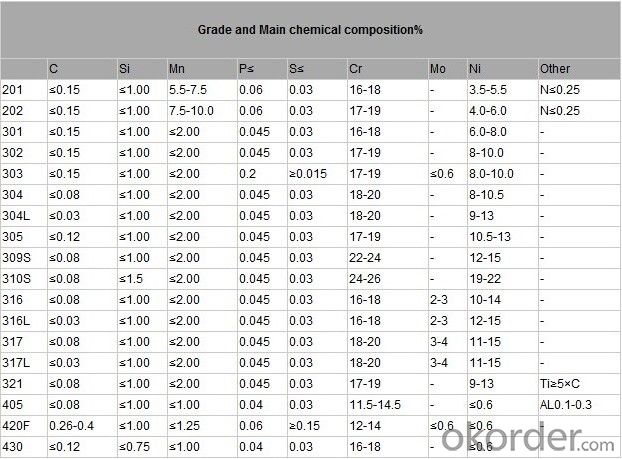
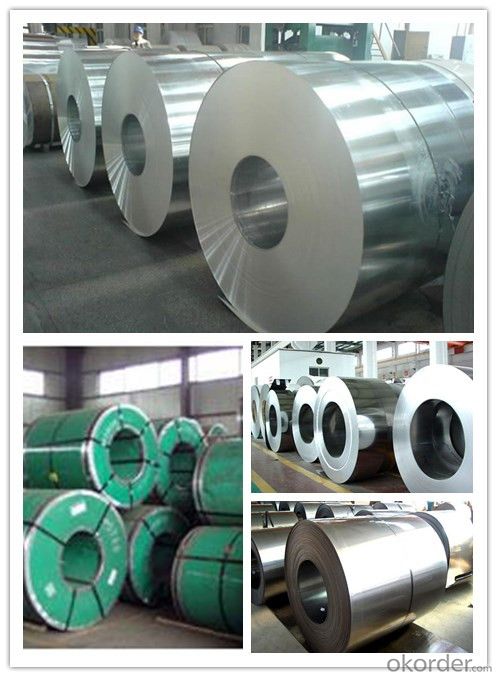
FAQ
1.What's your MOQ?
25MT, it is for one container.
2.Do you have QC teams?
Yeah, sure, our QC team is very important, they will keep the quality control for our products.
3. What's your normal delivery time?
Our delivery time about 10-20days for standard sizes, if you have other requirements like hardness and width ,it is about 20-40days. But don't worry ,we also try our best for the delivery time ,because time longer and our cost is higher.
4.Are the products tested before shipping?
Yes, all of our PPGI and GI was qualified before shipping. We test every batch every day.
- Q: I understand that damascus sword steel was made by folding the strip of steele double , reheating, hammering, folding again and so forth hundreds of times. Was this the same or very nearly the same techmique the japs used making the sword blades the samari swords?(forgive the misspelling)
- Folded Damascus Steel
- Q: What are the common coil surface finish standards?
- The common coil surface finish standards include mill finish, brushed finish, mirror finish, and embossed finish.
- Q: Can steel coils be coated with scratch-resistant materials?
- Yes, steel coils can be coated with scratch-resistant materials. These coatings are typically applied to the surface of the steel coils to enhance their durability and protect them from scratches and abrasions.
- Q: how many persent of manganese in all types of carbon steel
- No problem with other answers but there is a high carbon/manganese steel called Hadfields Steel which has been used as armour plate in pilots seats in fighter aircraft in the second world war.This steel contains about 13% manganese and about 1.5 % carbon and is non-magnetic because it retains it's high temperature crystal type(austenite).When it is stuck with a bullet it absorbs the energy of the strike by changing crystal structure to the magnetic form of iron(in this case shock Martensite),I should think that it still has a role in the scoops and picks in earth-moving and farming blades.Well you did ask about all types of carbon steel!
- Q: How are steel coils used in the production of metal panels?
- Metal panels require steel coils as an essential component in their production. These coils, typically made from high-quality steel, act as the raw material for manufacturing different types of metal panels. To initiate the production process, specialized machinery is used to unroll and flatten the steel coils. This process guarantees a consistent and uniform thickness throughout the sheet. Following this, the flattened steel is cut into the desired length and width, depending on the specific requirements of the metal panel being produced. After the steel has been cut, it undergoes further processing, including cleaning and coating. This step aims to eliminate any impurities and safeguard the steel against corrosion or damage. The coating also enhances the appearance of the metal panel and provides additional durability and longevity. Once the cleaning and coating process is complete, the steel sheets are shaped into the desired form using various techniques such as roll forming or stamping. This enables the creation of diverse metal panels, including roofing panels, wall panels, and decorative panels, among others. The selection of steel coils for metal panel production is based on their strength, durability, and versatility. Steel is renowned for its exceptional structural properties, making it the ideal material for constructing sturdy and long-lasting metal panels. Moreover, steel exhibits high resistance against environmental factors like extreme weather conditions, further enhancing the durability of the metal panels. In conclusion, steel coils play a critical role in the production of metal panels by serving as the raw material and undergoing various processes to ensure quality and durability. The utilization of steel coils enables the production of a wide range of metal panels suitable for various industries and applications.
- Q: How are steel coils shipped internationally?
- Steel coils are shipped internationally using various methods to ensure their safe and efficient transportation. The most common method is through container shipping, where steel coils are loaded into standard shipping containers for transportation. These containers are specifically designed to handle heavy and bulky cargo, such as steel coils. To load the steel coils into the containers, they are usually stacked horizontally and secured with steel strapping or metal bands to prevent movement during transit. This ensures stability and minimizes the risk of damage. Additionally, wooden or metal dunnage may be used to separate and secure the coils to further prevent shifting. Once loaded, the containers are sealed and transported to the port using trucks or trains. At the port, the containers are loaded onto cargo ships, either by crane or using specialized equipment such as roll-on/roll-off (RO-RO) vessels or semi-submersible ships. These ships provide a secure environment for the steel coils during the journey, protecting them from weather conditions and potential damage. During the voyage, the steel coils are subjected to various safety measures to prevent corrosion and protect their integrity. These measures include applying protective coatings, such as oil or special paints, and using desiccants or humidity control systems inside the containers to regulate moisture levels and minimize the risk of rusting. Upon reaching the destination port, the containers are unloaded from the ship and transferred to trucks or trains for further transportation to their final destination. At this stage, the steel coils may undergo customs clearance and inspection procedures before being delivered to the intended recipients. Overall, international shipping of steel coils involves meticulous planning, secure packaging, and the use of specialized containers and equipment to ensure their safe and successful transport.
- Q: How are steel coils inspected for flatness?
- Steel coils are inspected for flatness using various methods, such as visual inspection, measuring the crown or center buckle, and conducting a straight edge test. These techniques help assess any deviations or unevenness in the coil's surface, ensuring that it meets the required flatness standards.
- Q: What are the factors affecting the formability of steel coils?
- The factors affecting the formability of steel coils include the composition and microstructure of the steel, the thickness and width of the coil, the temperature and speed of the forming process, the lubrication used during forming, and the presence of any surface defects or contaminants.
- Q: Question about steel type used in bridges.?
- It is used for other things besides bridges and that might be a bad use. Corten was used for very tall light standards in the Fort Worth Water Gardens with the clear understanding that it was to be kept dry. As time passed and personnel changed, somebody decided the round base with bolts sticking up was ugly and put dirt and plantings in the basin in the concrete holding the poles. The watering of the plants kept the rust going through the steel and one pole eventually fell, killing two people. The other light poles were removed.
- Q: gigantic navy ships made of steel float, why??
- Believe it or not - A steel boat floats for the exact same reason all boats float. And the very best - easy to understand explanation of this (with pictures) is at the link below.
Send your message to us
High Quality 201 Stainless Steel Coil for Construction
- Loading Port:
- Tianjin
- Payment Terms:
- TT OR LC
- Min Order Qty:
- 25 m.t.
- Supply Capability:
- 10000 m.t./month
OKorder Service Pledge
OKorder Financial Service
Similar products
Hot products
Hot Searches
Related keywords
